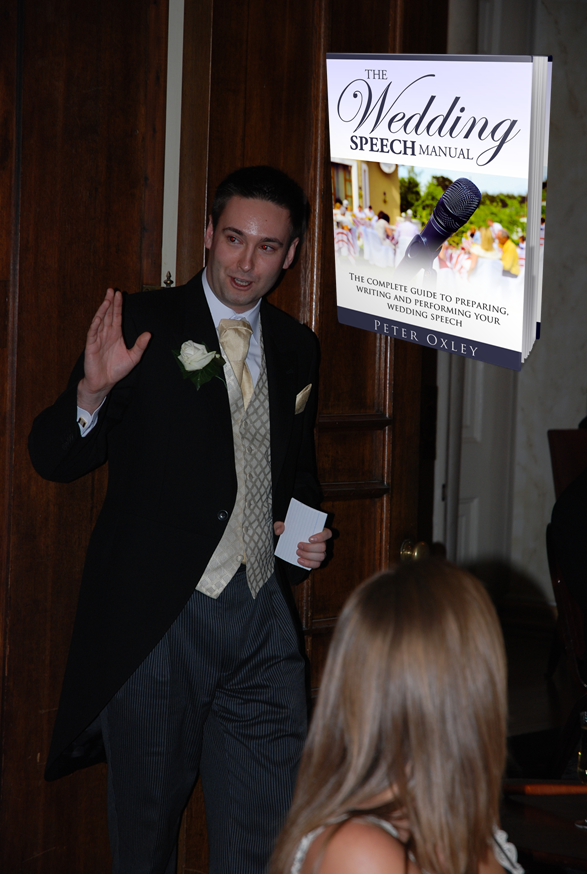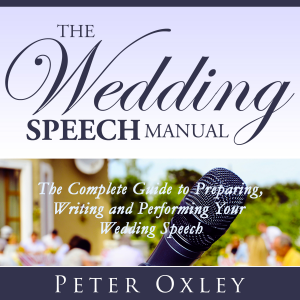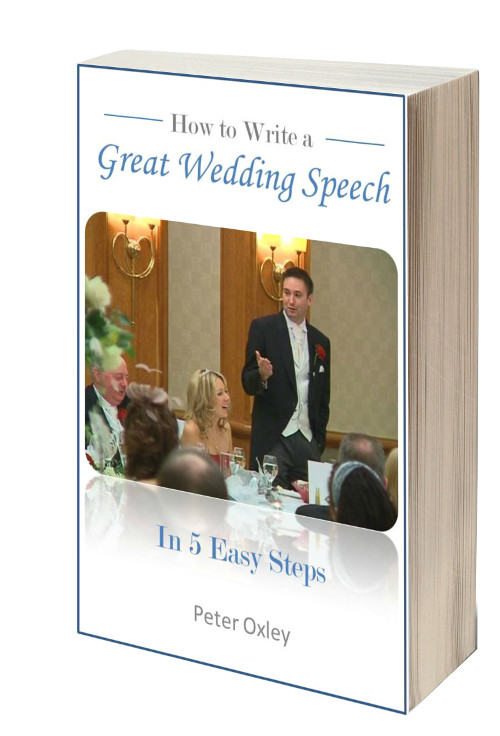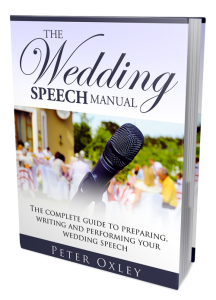What is Wedding Speech Coaching?
 What is Coaching?
What is Coaching?
There are many different definitions of coaching although it can be summarised as a proven method of developing people’s skills and abilities, and boosting performance, by two or more people working together in a collaborative fashion.
It is important to distinguish between coaching and training: although the two are very similar, coaching is more of a two-way process, with the person being coached (the “coachee”) having an active role in the process, rather than just receiving ideas and techniques from a teacher or trainer.
A coaching session will typically take place as a conversation between the coach and the coachee (person being coached), and it focuses on helping the coachee develop themselves, with guidance and prompting from the coach. After all, people are much more likely to engage with solutions that they have come up with themselves, rather than those that are forced upon them!
This is the approach I adopt: we will work together to identify the goals and concerns which you want to work on, and then I will help you to meet those goals and overcome those concerns. This can be done through the use of trying new techniques, tweaking your existing technique or facilitating your own development.
Key principles
You are in charge. You set the goals and the agenda: as the coach, I will help you to achieve those goals and make suggestions for next steps along the way. This may seem a bit odd, but bear in mind that you are much more likely to achieve something when you are 100% bought into it – and there’s no better way to be bought into a process than for it to be your idea in the first place!
It is a two-way relationship. It is very important that both of us feel comfortable and are bought in to the process and are happy with each other’s approach and attitude. Part of the purpose of my free initial 30 minute consultation (as well as to understand what your aims are) is for you to get to know me and my approach. If you do not feel that you can work with me, or I do not feel that my approach will work for you, then we can end the relationship with no hard feelings!
It is an active process. Rather than you as the coachee passively absorbing training, you will take an active role in your own development, testing and practising new ideas and techniques. In this way, it is not only effective but also fun!
My main aim
…is to give you the tools and confidence to help you achieve your goals. I am passionate about helping people to succeed; some of the greatest professional pleasures I have had have come from seeing formerly nervous speakers outperform their own expectations, thanks to their efforts and my coaching.
Throughout the whole process I will be mindful of your aims and your budget, and we will work together to ensure that you achieve your desired outcome in the time available.
My methodology
- Understand the “now” – where you are, what your concerns are, what you want to work on
- Establish the need for change – prioritise what you want to focus on first
- Teach you techniques to address these priorities
- Practise, review, refine
- Repeat from step 1 until fully satisfied
Many people are reluctant to take on coaching because they fear speaking in front of a stranger and having their whole technique torn to pieces (maybe thinly disguised as “constructive criticism”!). This is understandable: in my experience, this can be extremely counterproductive to your confidence and can end up setting you back rather than helping you to succeed, with you focusing on all your shortcomings rather than celebrating and building on the things you do well.
For some clients (often the more experienced speakers), a practise run through their speech followed by feedback is what they need and want – and I am more than happy to provide this.
However, for the others (in my experience the vast majority), the best approach is for us to work together to achieve your goals in a step-by-step manner, starting with your most pressing concerns and then picking up on other areas for improvement as and when we spot them. This is far more effective (not to mention much less demoralising) than me just giving you constructive criticism of where you are now – instead, I will show you how to succeed, supporting you along the way until you achieve your goals.
That is not to say that you won’t be practising your speech. I firmly believe that practise and preparation are at the heart of a great speech (in fact pretty much everything in life!). When you are ready, we will rehearse your speech, or you will go away and do it in front of others – trust me, you 100% do not want your first time delivering your speech to be when you stand up for real on the big day!
Want to know more? Please feel free to contact me at pete@perfectweddingspeech.com (or on my Facebook page or via Twitter), use the contact form here or leave a comment below!






